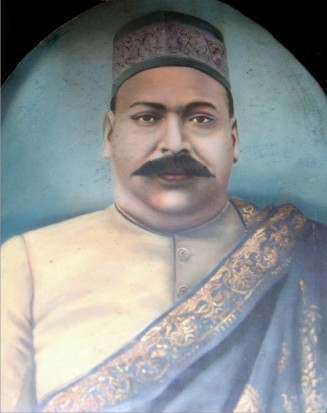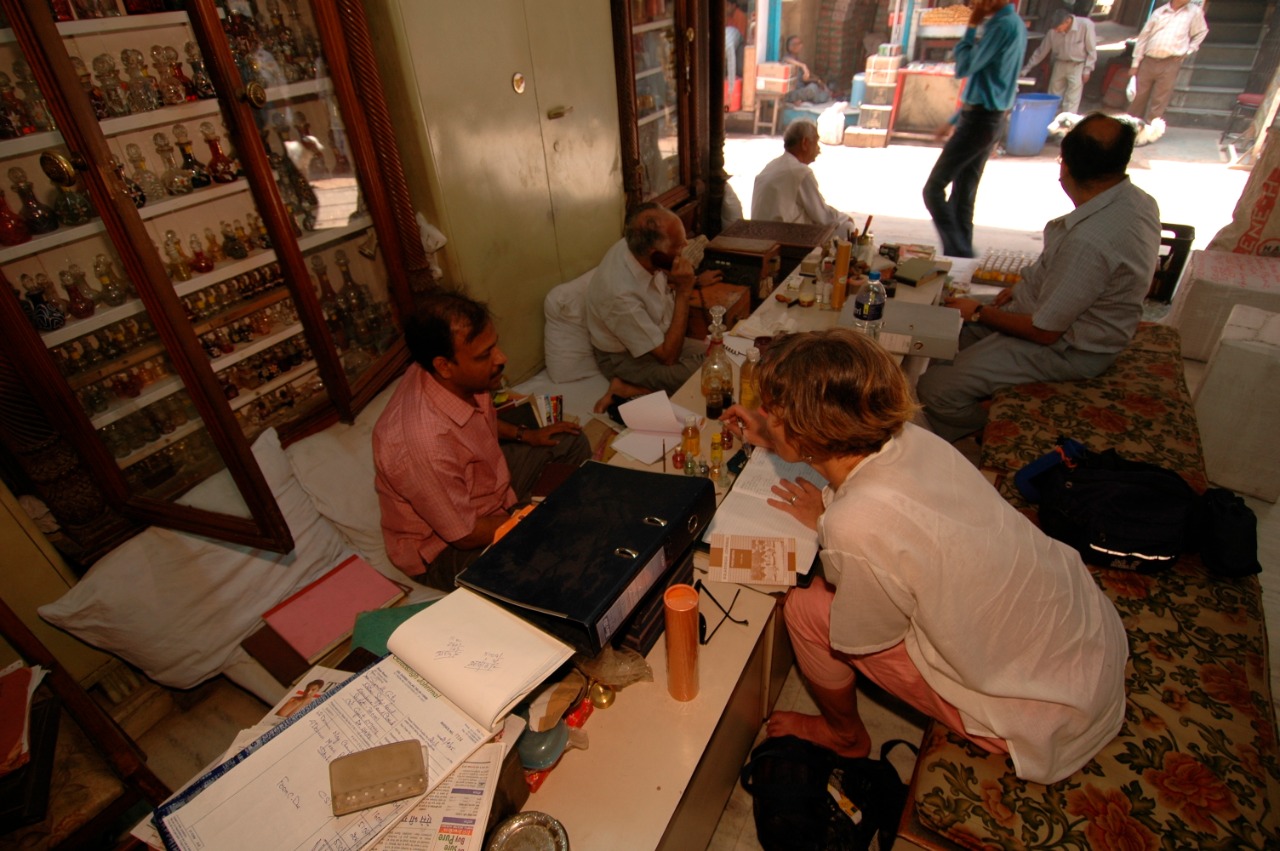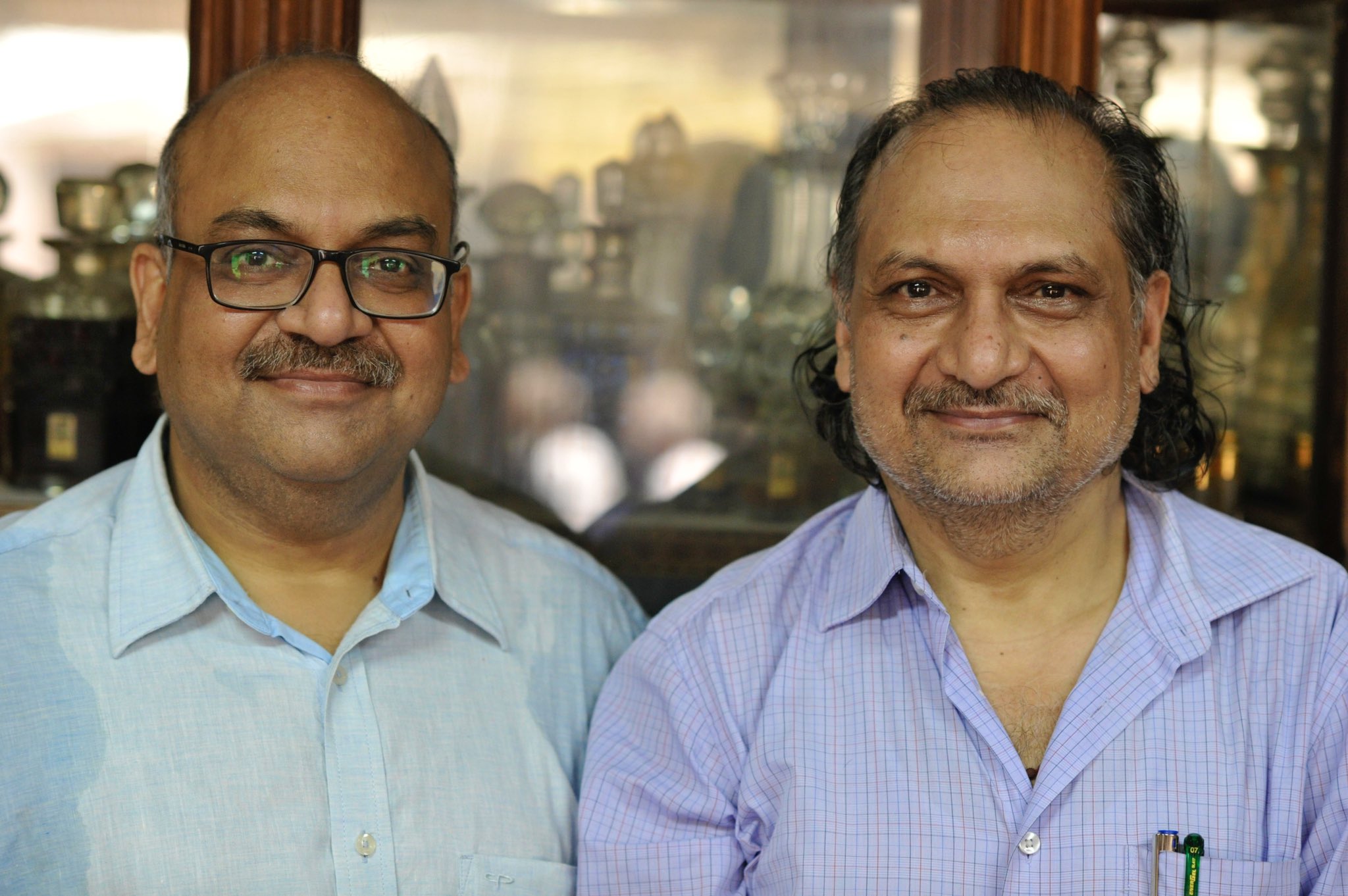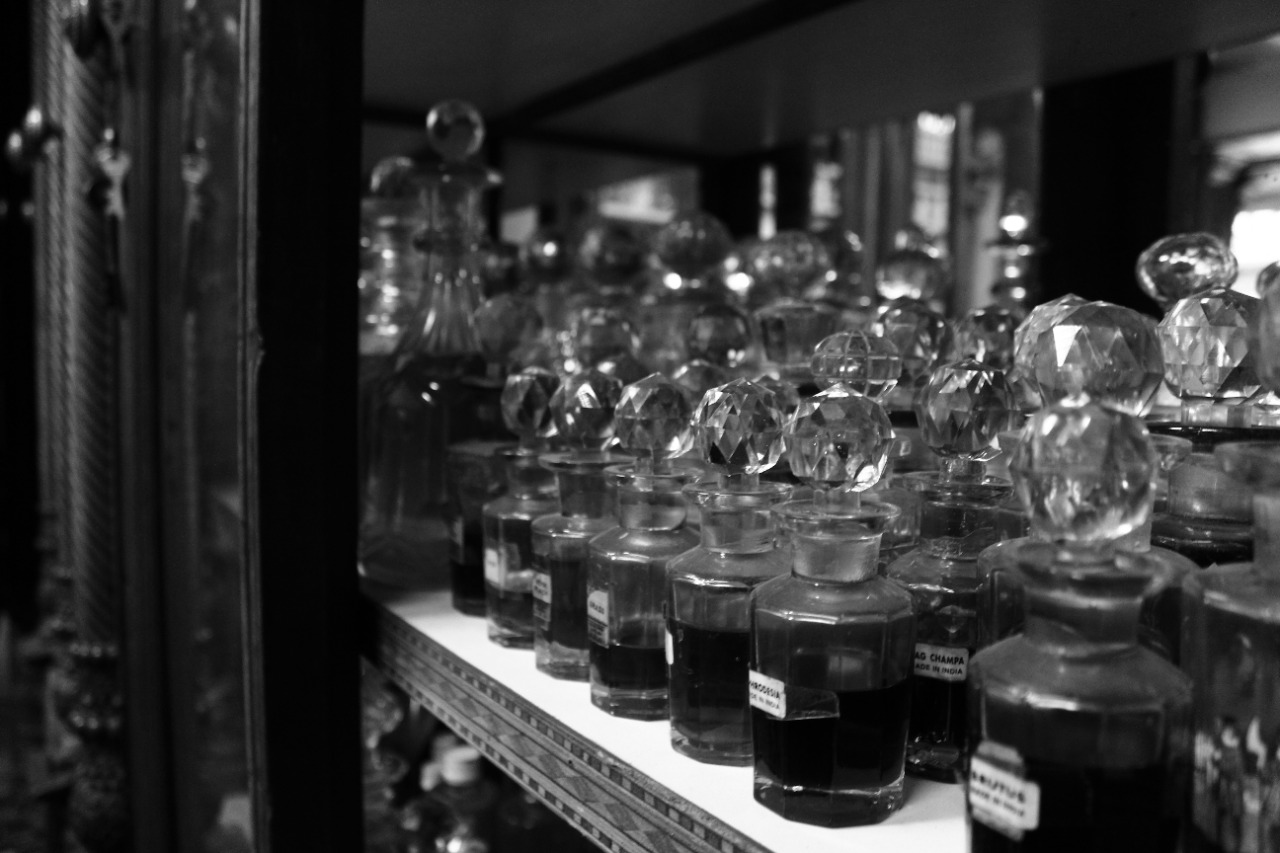Established in 1650 by the Mughal Emperor Shah Jahan, Chandni Chowk is undoubtedly one of Delhi’s busiest marketplaces. One can spend an entire day in this market and still come back feeling like they haven’t visited every shop. Each little gulli (lane) has a story to tell and almost every shop adds to its charm.
Home to the famous poet Mirza Ghalib, Chandni Chowk also houses a perfumery established in 1816 by Lala Gulab Singh and his son Lala Johrimal called Gulab Singh Johrimal, at 320 Dariba Kalan.

The perfumery continues to be operated and managed by the same family and while the fragrances that were sold in the early days continue to be bestsellers, with every new generation there have been new additions to the product lines. The youngest of the three brothers, Mukul Gundhi, who manages the business and takes us through the many years of its existence not before listing out the ‘right way’ to apply perfume.
“Never apply perfume directly on the skin, even if it is in its purest form.”

“Dab a little perfume onto your palm, rub both the palms together and then dab your palm on the apparel you are wearing. This will ensure that even if you sweat the fragrance is not lost,” he lists, excitedly.
“My brothers, Atul and Praful and I are seventh-generation entrepreneurs in this shop,” Mukul proudly says, adding that his nephew has recently joined the business, ushering in the eighth generation. While there are no official records, according to stories that have been passed on through the generations, the shop has enjoyed patronage from the daughters of Akbar Shah II, Bahadur Shah Zafar, the last Emperor of India and many nawabs and poets over the years.
Groomed for business

Mukul says that since he can remember, he knew that he would be a part of the business. His ‘internship’ at the store started off rather early in life. “Our home is very close to the shop and that, in a way, helped a great deal. It was always easy to reach the store and we were called any time help was needed,” he says. He recalls festivals like Diwali being the busiest at the store and has very fond memories of helping out.
“The number of people required to man the store during festivals always increased, and our father, Ram Singh, would turn to the three of us to assist,” he adds. There was also a lot of enthusiasm amongst the brothers to be at the store. Being in Chandni Chowk during the festival was just another factor that attracted them to do their job. “The festivities started way before the actual festival and it felt like everyone was out celebrating,” he says. Being at the store was never a task for the Gundhi boys, on the contrary, they enjoyed their work.
He adds that in a similar manner the eighth generation also has very seamlessly entered the business. Asked why they never considered moving to a larger space with a different clientele, he says, “We have all we want right here. We attract clients from all across the globe and all sections of society. Why would we even consider moving away?” The manufacturing unit of the perfumery is also in the vicinity and Mukul says that in order to maintain quality control they like to stay close by.
A frequent request that comes their way is to customise fragrances.

Mukul explains, “Customisation of perfumes is a very labour-intensive process. It requires one to study the client in-depth to be able to come up with something that is pleasing to their senses. After all, it isn’t like getting a plate of chaat made where you can request for more spice or chutney.”
He adds, “Clients tell us they want a woody note or a sweet smell in their perfume without really understanding what that means when it gets translated into a scent. So, while on a daily basis we get two to three requests for customisations, we politely refuse.”
Deg Bhapka – an 1816 tradition

Talking about centuries-old traditions still used in the perfumery, Mukul speaks of Deg Bhapka — a technique that has been used for years to make ittar. In this process, fresh flower petals and water are put into large copper pots called ‘degs’, which are then sealed using a mix of cotton and clay. A large bamboo pipe is used, which connects the copper pot to another copper pot called ‘Bhapka’.
The ‘Bhapka’ is placed inside a water tank and the pot is heated using dung cakes and wood. The first distillate is cooled down and the liquid is collected, this liquid is then transferred to an empty copper pot and distilled again to extract the ittar. This is a technique that is practised even today at the shop’s manufacturing unit in Siktara in Hathras, Uttar Pradesh.
“Ruh Gulab, which is the pure extract of rose flower, costs almost Rs 28,000 for 10 ml, and to extract 1 kg of this we require 5,000 kg of fresh rose petals. For this extraction, we continue to use the age-old deg bhapka technique even today,” says Mukul. This is a very slow and time-consuming process and can be done only by those who have the know-how of this technique, he adds. The process involves collecting the rose petals and starting the process before dawn, so it needs to be done on the fields where the rose is grown.
Ruh Gulab, despite being so expensive, is one of the bestsellers and Mukul says that it has religious significance as it is offered to the deities in various temples across India.

“The pure ittars are also a big seller for us along with the blended sandalwood, rose and even khus (vetiver). The best part is that one will find a fragrance to fit your budget. Our prices range from Rs 100 for the 10 ml blend perfume and goes up to Rs 28,000 for 10 ml of Ruh Gulab.”
Just as we are about to conclude our chat, Mukul says, “I am not sure that our forefathers would have ever imagined their legacy to continue for over two centuries. With each generation our pride multiplies.”
If you happen to be in Delhi and wish to visit this perfumery, then do log in here to find all details.
(Edited by Yoshita Rao)
Comments
Post a Comment